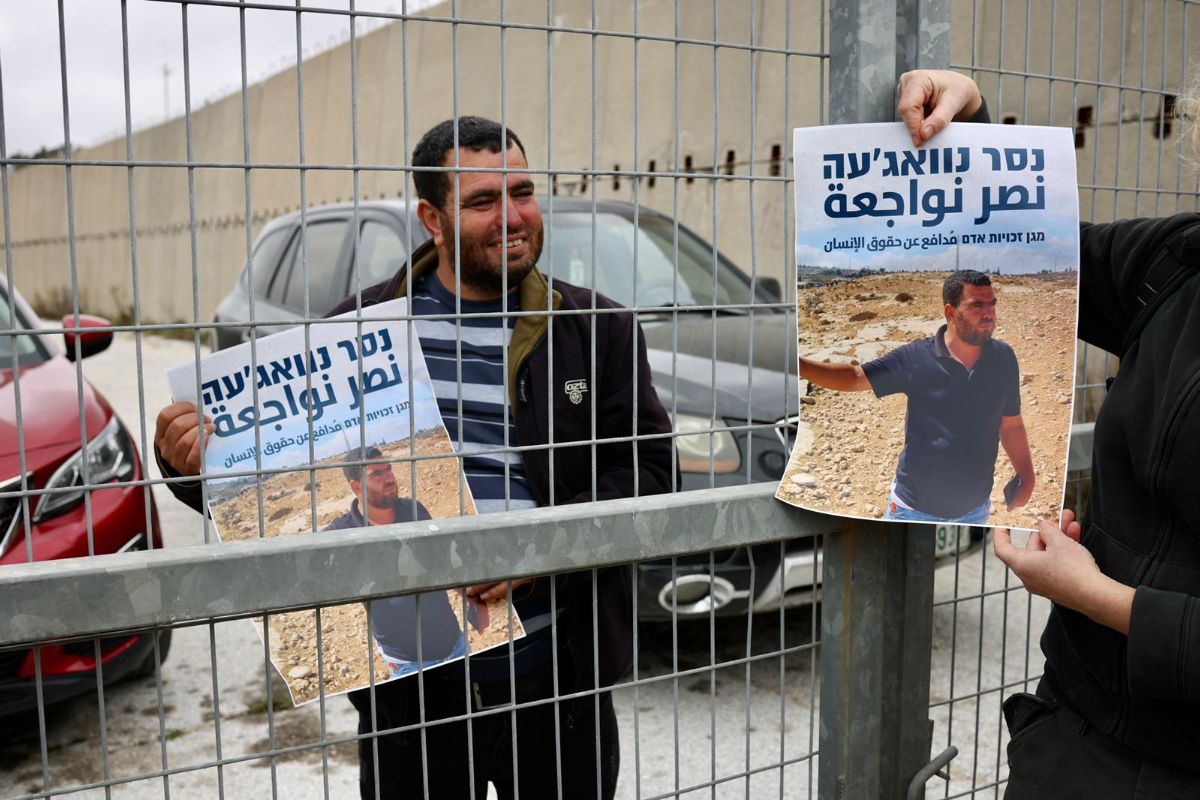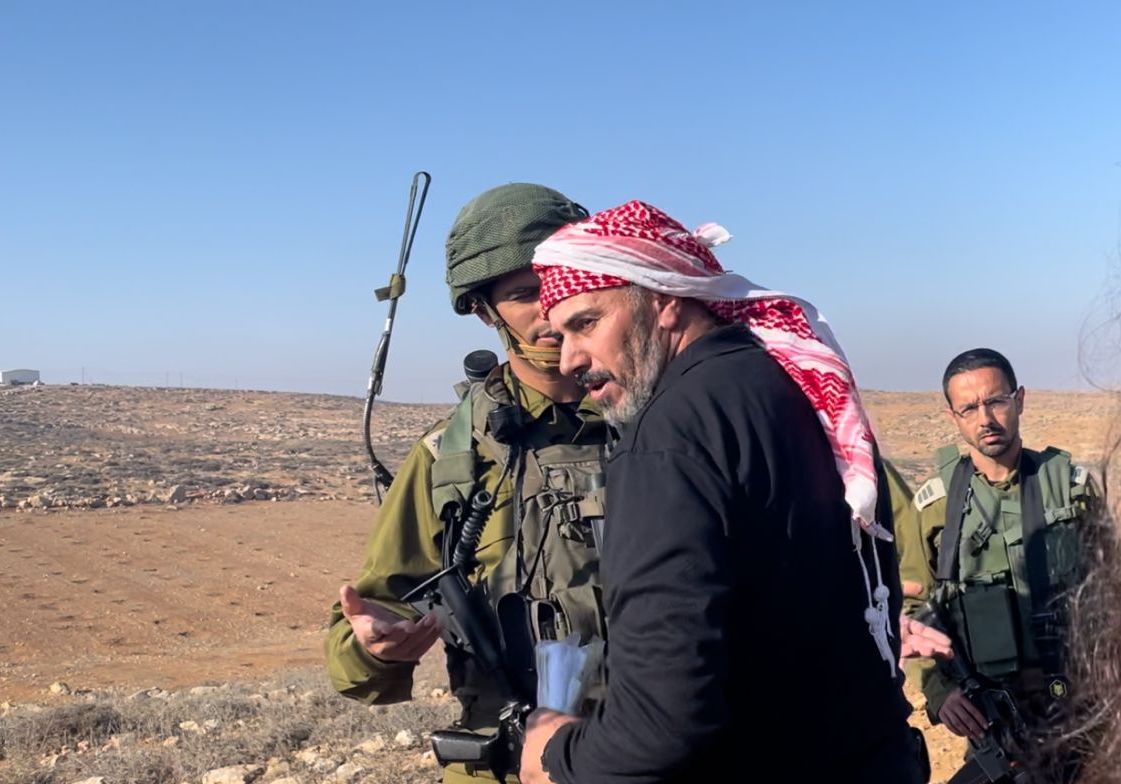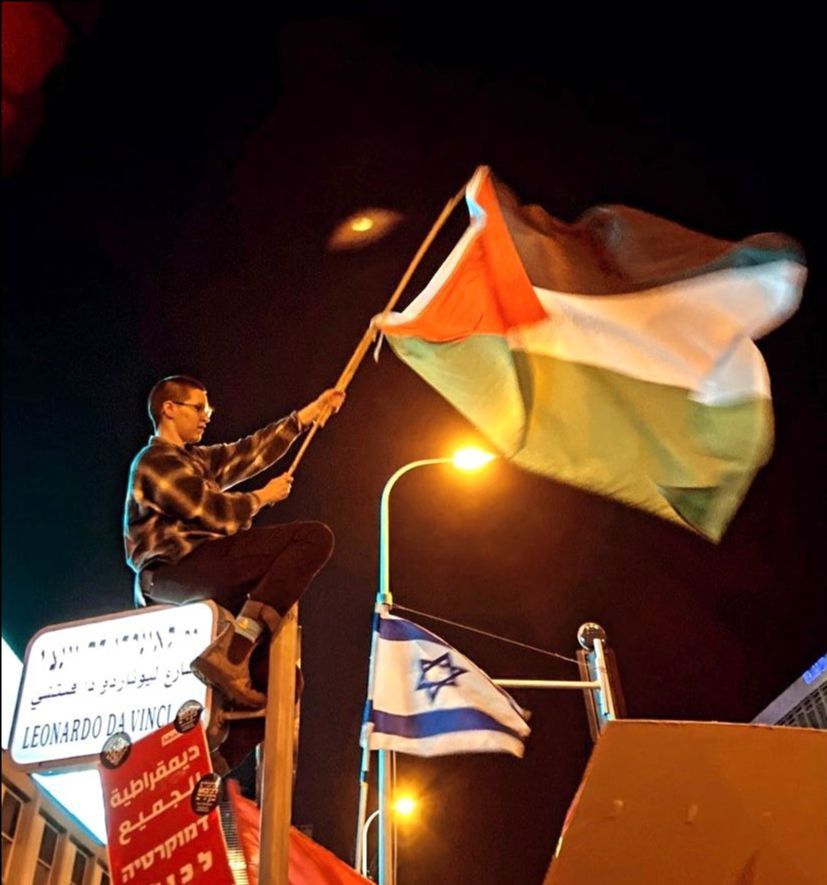| Arrest of HRDs waving Palestinian flags
In the past several months, there have been countless instances of confiscation of Palestinian flags and arrests of protestors waving Palestinian flags at demonstrations, despite the fact that it is completely legal under Israeli law and theoretically protected under freedom of political expression. Since the start of anti-government protests last December, HRDF has represented 13 HRDs in incidents and arrests relating to Palestinian flags in public demonstrations.
During a January 26 demonstration in Haifa against the multi-day IDF military incursions in the Jenin refugee camp that left dozens of Palestinians dead and hundreds injured, prominent HRD Gil Hamerschlag was arrested for refusing to lower the Palestinian flag after police ordered its removal. Several other HRDs were present waving Palestinian flags during the protest, including Hadash MK Ofer Cassif who also refused to lower his Palestinian flag. Police ultimately opted to release Hamerschlag without condition. The following day, January 27, during continuing demonstrations against the Jenin massacre, four HRDs (3 Israeli including Hammerschlag, and 1 Arab-Israeli) were again arrested for waving Palestinian flags, on charges of obstructing a public servant and disturbing the peace. The 3 Israeli HRDs were released immediately, but the Arab-Israeli HRD was held overnight before his release.
During a March 27 demonstration against the judicial coup, prominent HRDs Shir Bram and Avishai Mohar were arrested near the Knesset building by police using excessive violent force while waving Palestinian flags. Mohar was released after interrogation to house arrest and two-week ban from the site of the protest, and Bram was released the following day after a detention hearing with a 15-day ban on participating in illegal demonstrations. Following an appeal filed by HRDF-funded lawyer Nasser Odeh against Mohar’s excessively restrictive release conditions, the terms of his house arrest were withdrawn.
Throughout April, there were a series of arrests in Haifa effectively criminalizing the presence of Palestinian flags in public space.
- On April 1, HRD Salim Abbas was arrested in Haifa while holding a Palestinian flag after police attempted to prevent the anti-occupation bloc of the protest from joining the mainstream demonstration. Abbas attempted to negotiate with police officers to allow them access, during which time he was arrested with brute force. (He was released following interrogation).
- On April 2, 4 HRDs were arrested in Haifa at a protest against the murder of Muhammad Elasibi and the violent police raid in Al-Aqsa Mosque, during which demonstrators waved Palestinian flags (3 were immediately released following interrogation and one of the Arab-Israeli HRDs was kept in custody and released to house arrest the following day).
- On April 5, during a similar protest rally in Haifa against the Al-Aqsa violence, police attacked demonstrators without issuing an order to disperse, and tore down Palestinian flags. HRD Sahar Toma was arrested, detained overnight, and released to full house arrest for 5 days and a prohibition of contact with other political activists. After an immediate appeal by HRDF-funded lawyer Riham Nassra against the excessively restrictive conditions, Toma’s house arrest was canceled.
Excessive Use of Force Against Demonstrators
Over the past several months, police have used violent means to disperse the massive protests proliferating in urban centers throughout the country, including using water cannons, stun grenades, and physical brute force.
On February 9, two prominent HRDs Shir Bram and Omer Sharir were arrested forcefully during a demonstration against the judicial reforms near Azza Street in Jerusalem. During his hearing the following day, Sharir showed clear signs of injury, and the court ordered the police to investigate misconduct after videos from the incident showed police physically assaulting Sharir during arrest.
On March 3, six prominent HRDs (Itai Feitelson, Avihai Batito, Roi Aloni, Guy Avni, Muhammadd Abu Hummus, and Avishai Mohar) were arrested during a weekly Friday protest in Sheikh Jarrah, after settlers and police officials began to attack demonstrators in multiple sections of the demonstration. During the demonstration – which took place against a Writ of Execution hearing scheduled for March 9 on the eviction case of the Salem family which has since been postponed – the officers attempted to disperse demonstrators by riding through on mounted horse and spraying the noxious substance “skunk water.” Four of the HRDs were released after interrogation to one day of house arrest, and all of the protestors were banned from Sheikh Jarrah for a period of between 15 to 30 days.
|




